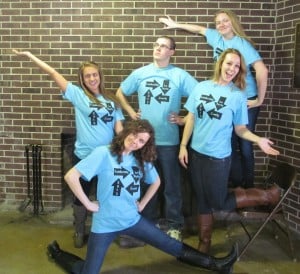This week, I want to share with you one of my new favorite science fiction authors. For those who aren't familiar, a blog-bomb is just a surprise entry highlighting someone in particular, chosen strictly at my own caprice.
For BB3, I chose Rhobin L. Courtright, author of Crewkin. Okay, so maybe this is just as much about the book as it is about Ms. Courtright, which may make this more of a review than a true blog-bomb in the purest spirit of the blog-bomb intent. But I claim rights to trhe term, and I'll make it what I want. So there.
First, I have to say I'm a big fan of Robert A. Heinlein and his style. I'm not so much a fan of authors like Arthur C. Clarke et al. I enjoyed 2001, in spite of the fact that throughout most of the book, NOTHING HAPPENS! Heinlein had some "draggers" too, but most of his books were excellent examples of action in a science fiction universe.
Rhobin Courtright's Crewkin was one of the first electronic books I bought, and a finalist for the 2012 EPIC Award for Best Science Fiction novel. After reading it, I heaved a huge sigh of relief that I entered my own novel in a different category, because I'm not sure Becoming NADIA would have beaten out Crewkin for the sci-fi category.

Renna Markham 3 is the only survivor of a long-haul star freighter that died in an incident so horrific that the Markham Corporation (owners of the ship, de facto, Renna) and doesn't even want to talk about it. "Podders" as Renna and her crewkin are called, are so ingrained and isolated from "normal" folks like us, they don't even know how to survive socially, and the standard practice in any ship failure is for the entire crew to "join" by committing suicide. But for some reason, Renna wants to continue leaving. Her first great act of defiance is to walk out of the company clinic. I cheered. Now, for me to get that attached to a character less than one page in takes some damned good dialogue and a situation I can identify, and Ms. C did that marvelously well. Frighteningly well.

Her second act of defiance is to grow hair. I don't want to explain it, you'll just have to read it yourself.
The Story then becomes centered around Renna's struggles to assimilate into a human society, wandering from job to job on the in-system short-haul space freighters, only to be shunned by crew after crew for her strange habits and customs, accumulated from her life as a member of a Podder crew. I think many of us can understand what it's like to be on the outside looking in, and I felt that sting deeply, even after she finds herself in with yet one more short-haul crew. Only this bunch have problems of their own. Each one is another misfit in his or her own way. So take one dysfunctional short-haul crew, add a Podder and shake well. You get some interesting colors.
Then, the other subplots start appearing. The cargo they took on at their last port, the one they are depending on to keep the ship's owners from bankruptcy? There's something odd about that.

And that's just the beginning of "interesting."
Now, in the middle, there's some Clarke-esque moments where I thought the pace could have been a little more "on-spot." But I'm not going to fault a chess master for setting up his pieces for a checkmate, either. And the pace picked up nicely toward the grand climax at the end, and a very satisfying conclusion was reached.
I closed the book very impressed with the way it all fell together, and you guys want to read it, if you haven't already.
Thanks for a great ride, Rhobin. I look forward to more.



